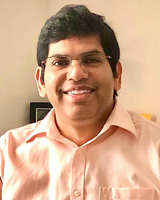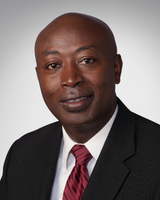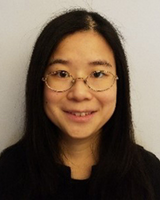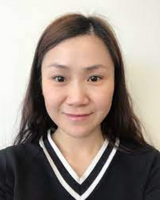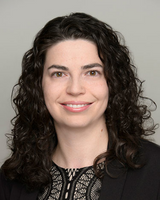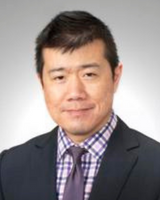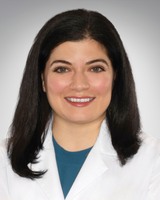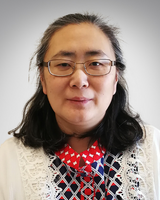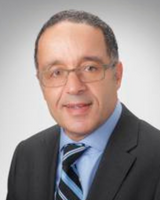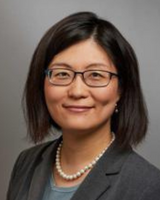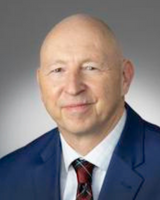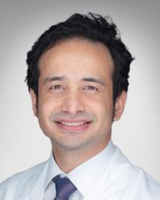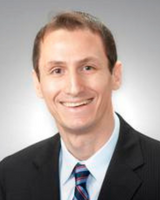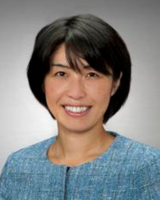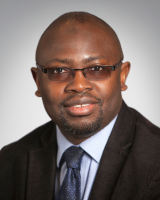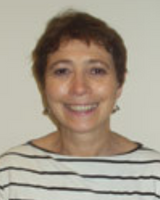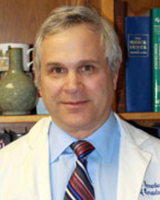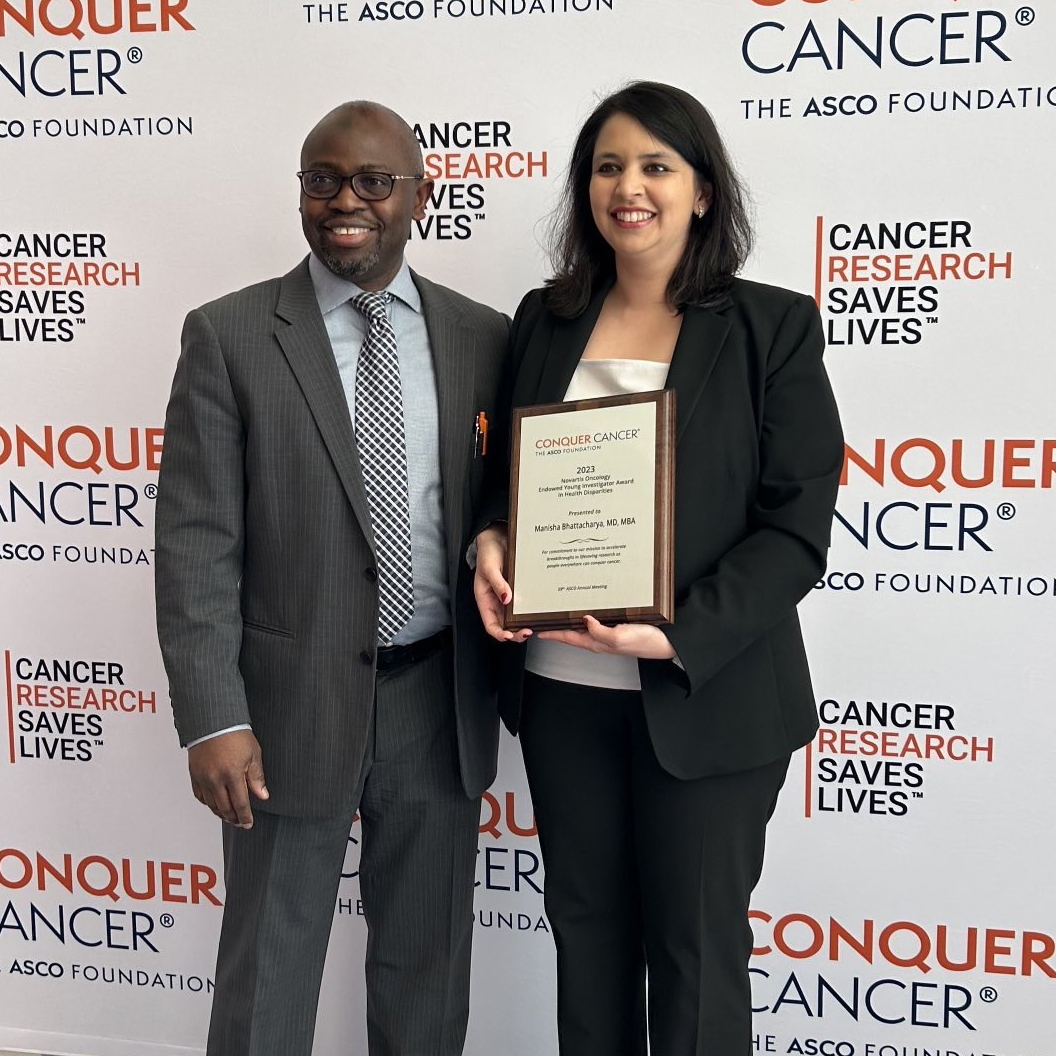Research
With a strong commitment to research, the Division of Hematology/Oncology is actively advancing the understanding, diagnosis, and treatment of cancer and hematological disorders. Through our clinical, basic, and translational research programs, our faculty are defining lifesaving approaches and accelerating the transformation of breakthroughs in their laboratories into clinical application for patients within the region and beyond.
The UPMC Hillman Cancer Center, which serves as the hub for the Hematology/Oncology scientific and clinical research activities in cancer, is internationally recognized for its leadership in the prevention, detection, diagnosis, and treatment of cancer. As the preeminent institution in western Pennsylvania for the delivery of cancer care, the performance of basic, translational, and clinical research, and the education of the next generation of cancer researchers and physicians, UPMC Hillman Cancer Center is a leader in the global effort to reduce the burden of cancer. With over 300 research and clinical faculty members specializing in disciplines ranging from cancer prevention and early detection to novel therapeutic discovery, survivorship, and end of life care, UPMC Hillman Cancer Center maintains a broad strategic vision and comprehensive approach to understanding and defeating cancer. At UPMC Hillman Cancer Center, basic researchers collaborate with clinician-scientists to rapidly advance the most promising laboratory studies into novel clinical trials, providing patients with early access to new and innovative treatments.
The UPMC Hillman Cancer Center is also one of only 51 NCI-designated P30 comprehensive cancer centers in the country and the only one in Western Pennsylvania. These Cancer Centers of Excellence are recognized by the NCI for their scientific leadership, resources, and the depth and breadth of cancer research in basic, clinical, and/or population science. A large number of Division faculty play important roles in this P30 grant, including Riyue Bao, PhD (Co-Director of Cancer Bioinformatics Services); Adam Brufsky, MD, PhD (Co-Leader, Cancer Therapeutics Program); Ronald Buckanovich, MD, PhD (Co-Leader, Cancer Biology Program); Leisha Emens, MD, PhD (Co-Leader, Cancer Immunology and Immunotherapy Program); James Herman, MD (Co-Leader, Cancer Epidemiology and Prevention Program); Yen-Michael Hsu, MD, PhD (Director, Immunologic Monitoring and Cellular Products Laboratory); Linda B. Robertson, DPH, MSN, BSN (Associate Director, Health Equity and Community Outreach & Engagement); John C. Schmitz, PhD (Co-Director, Cancer Pharmacokinetics and Pharmacodynamics Facility); Antoinette Wozniak, MD, (Associate Director of Clinical Research); and Hassane Zarour, MD (Co-Leader, Cancer Immunology and Immunotherapy Program).
The Division also includes a Section of Benign Hematology with more than 10 physician-scientists and research investigators and is of the largest benign hematology programs in the U.S. Areas of excellence include hemophilia and bleeding disorders, and sickle cell disease. The section oversees more than 20 clinical studies, primarily in sickle cell disease, but with a growing number of trials in other areas of benign hematology, such as acquired platelet disorders and autoimmune hemolytic anemias.
Benign Hematology
LABORATORIES: Ghosh Lab | Novelli Lab
Bone Disease and Sarcoma
LABORATORIES: Du Lab
Breast and Ovarian Cancer
LABORATORIES: Hempel Lab
Cancer Genomics
Cancer Immunology and Therapeutics
Cancer Palliative Care and Survivorship
Gastrointestinal and Colorectal Cancers
Head and Neck Cancer
Leukemia
Lung Cancer
Molecular Biology and Epigenetics
Sickle Cell Disease
LABORATORIES: Ghosh Lab | Novelli Lab
Stem Cell Biology and Therapy
LABORATORIES: Du Lab
Division of Hematology/Oncology Research Highlights
ASCO 2023
The Division of Hem Onc was again strongly represented at this year’s ASCO meeting with many residents, fellows and faculty attending and presenting their recent findings. Congratulations to Dr. Manisha Bhattacharya for receiving the competitive ASCO Young Investigator Award and to Division chief Dr. Taofeek Owonikoko who has been named ASCO treasurer for 2023-24.
Dr. Jingxiao “JJ” Jin (1st year fellow) presented the study: “Interim results from a phase I/II study of duvelisib PI3Kδγ inhibitor and nivolumab in patients with advanced unresectable melanoma who have progressed on anti-PD1 therapy.” (co authors: Jingxiao Jin, Anjali Rohatgi, Andrew Gabrielle, Amy Rose, Melissa Wilson, Tullia C. Bruno, John M. M. Kirkwood)
Dr. Xiancheng “Lewis” Wu (PGY-2 resident) reported on: “A radiomic-based predictive model of lung adenocarcinoma brain metastases and molecular subtypes” (co-authors: Xiancheng Wu, Maria A Velez, Murat Ak, Nourel Tahon, Priyadarshini Mamindla, Vishal Peddagangireddy, Rivka R. Colen, Laura P. Stabile, Timothy F. Burns)
Dr. Andrew Knight (PGY-3 resident) presented the abstract: “Prognostic significance of immune-related adverse events and immunosuppression in patients with melanoma receiving adjuvant anti-PD-1 therapy.” (Co-authors: Andrew David Knight, Lilit Karapetyan, Sabrina Bruno, Hassan Mohammed Abushukair, Na Bo, Hong Wang, Cindy Sander, John M. M. Kirkwood)
Dr. Benjamin Nacev (assistant professor) presented a talk entitled: “Integrating Genomic Profiling in the Care of Patients with Sarcoma: From Diagnosis to Therapy”.
Dr. Risa Wong (assistant professor) presented her study entitled: “Differences in real-world pembrolizumab dosing patterns (every 3 weeks versus every 6 weeks) across a large cancer center network” (Co authors: Divya Natesan, Priyanka Chablani, Hong wang, Mark Jelinek, Margaret Rosenzweig, Risa Wong)
Dr. Jason Luke (associate professor) reported on: “Pembrolizumab versus placebo as adjuvant therapy in stage IIB or IIC Melanoma: Final analysis of distant metastasis-free survival in the phase 3 KEYNOTE-716 study”
Dr. Anwaar Saeed (associate professor) contributed to the following abstracts:
- “Phase 1 dose escalation study of DSP107, a first-in-class CD47 and 4-1BB targeting fusion protein, in combination with atezolizumab in patients with advanced solid tumors.”
(Co-Authors: Anwaar Saeed, Babar Bashir, Jason J. Luke, Reuven Chantre, Shira Amsili, Rinat Tabakman, Yaffa Shwartz, Adam Foley-Comer, Antonio Jimeno)
- “A phase 2 single-arm study of berzosertib in combination with irinotecan in patients with progressive TP53 mutant gastric and gastro-esophageal junction cancer.”
(Co-Authors: Shannon Stockton, Heloisa P. Soares, Farshid Dayyani, Anwaar Saeed, Edward S. Kim, Ning Jin, George Hosni Yacoub, Jennifer Whisenant, G. Dan Ayers, Steven Gore, Satya (Nanu) Das, Jordan Berlin)
- “Phase 2 study of elraglusib (9-ING-41), a glycogen synthase kinase-3b inhibitor, in combination with gemcitabine plus nab-paclitaxel (GnP) in patients with previously untreated advanced pancreatic ductal adenocarcinoma (PDAC).”
(Co-Authors: Devalingam Mahalingam, Anwaar Saeed, Steven Francis Powell, Marisol Huerta Alvaro, Vaibhav Sahai, Andrew L. Coveler, Elizabeth J. Davis, Neeltje Steeghs, Mary Frances Mulcahy, Alexander G Raufi, Ludimila Cavalcante, Andres Cervantes, Jordan Berlin, Janna Afanasjeva, William Mikrut, Sheri Lynn Smith, Francis J. Giles, Benedito A. Carneiro)
- “STELLAR-303: A phase 3 study of XL092 in combination with atezolizumab versus regorafenib in patients with previously treated metastatic colorectal cancer.”
(Co-Authors: J. Randolph Hecht, Josep Tabernero, Aparna Raj Parikh, Yijia Wang, Zhong Wang, Martin Schwickart, Dominic Curran, Anwaar Saeed)
- “Targeting germline or somatic DNA repair defects (beyond BRCA) in pancreatic cancer with niraparib: A phase II study (NIRA-PANC).
(Co-Authors: Anup Kasi, Junqiang Dai, Raed Moh’d Taiseer Al-Rajabi, Joaquina Celebre Baranda, Anwaar Saeed, Prabhakar Chalise, Erin Carroll, Shannon Bradbury, Stephen Hyter, Malgorzata Anna Witek, Venkatadri Beeki, Richard J. McKittrick, Manidhar Reddy Lekkala, Anusha Chidharla, Sean Kumer, Timothy Schmitt, Stephen K. Williamson, Steven Soper, Andrew K. Godwin, Weijing Sun)
- “Trastuzumab-induced cardiotoxicity in breast cancer patients: A meta-analysis and review of the literature (2012-2022).
Authors: Fnu Anamika, Akshit Chitkara, Komal Saharan, Tushar Choudhary, Ujjwal Soni, Gabriella Angelina Harmon, Anwaar Saeed)
Spring 2023 Research Highlights
Highlighted Publications
- Graft-versus-host disease is locally maintained in target tissues by resident progenitor-like T cells. In allogeneic hematopoietic stem cell transplantation, donor αβ T cells attack recipient tissues, causing graft-versus-host disease (GVHD), a major cause of morbidity and mortality. A central question has been how GVHD is sustained despite T cell exhaustion from chronic antigen stimulation. The current model for GVHD holds that disease is maintained through the continued recruitment of alloreactive effectors from blood into affected tissues. Here, the authors show, using multiple approaches including parabiosis of mice with GVHD, that GVHD is instead primarily maintained locally within diseased tissues. By tracking 1,203 alloreactive T cell clones, a mathematical model was fitted, predicting that within each tissue a small number of progenitor T cells maintain a larger effector pool. Consistent with this, Dr. Warren Shlomchik et al identified a tissue-resident TCF-1+ subpopulation that preferentially engrafted, expanded, and differentiated into effectors upon adoptive transfer. These results suggest that therapies targeting affected tissues and progenitor T cells within them would be effective. (Sacirbegovic F, …, Shlomchik WD. Immunity. 2023 Feb 14;56(2):369-385.e6. PMID: 36720219.)
NIH Funding
- Dr. Samit Ghosh (PI), “Renal endothelium and the development of chronic kidney disease in sickle cell disorders,” NIDDK R01. Read more
- Dr. Dan Zandberg / Dr. Theresa Whiteside / Dr. Brenda Diergaarde (MPI), “Small extracellular vesicles as biomarkers of prognosis and response to therapy in head and neck cancer,” NIDCR R01
Scientific Presentations
- 2023 AACR annual meeting, Orlando FL:
- Dr. Taofeek Owonikoko will chair the session: “Small Cell Lung Cancer: Moving Biology to the Clinic” and present the talk titled: Putting SCLC in context using emerging clinical and translational insights.
- Dr. Nadine Hempel will chair the session: “Tumor Cell Adaptability and Stress Response” and present the talk titled: “ Oxidative stress adaptations during metastasis: Focus on antioxidant enzyme function and regulation”.
- Dr. Lan Coffman will chair the session: Models for Aging and Cancer and present the talk titled: “Studying the impact of the aging stromal microenvironment on cancer initiation”
Contact Us

Division of Hematology/Oncology
Administrative/Academic Offices
UPMC Cancer Pavilion
5150 Centre Avenue, 5th floor
Pittsburgh, PA 15232
412-648-6575 | Email Us
UPMC Hillman Cancer Center
Outpatient Services
5115 Centre Avenue
Pittsburgh, PA 15232
412-692-4724





